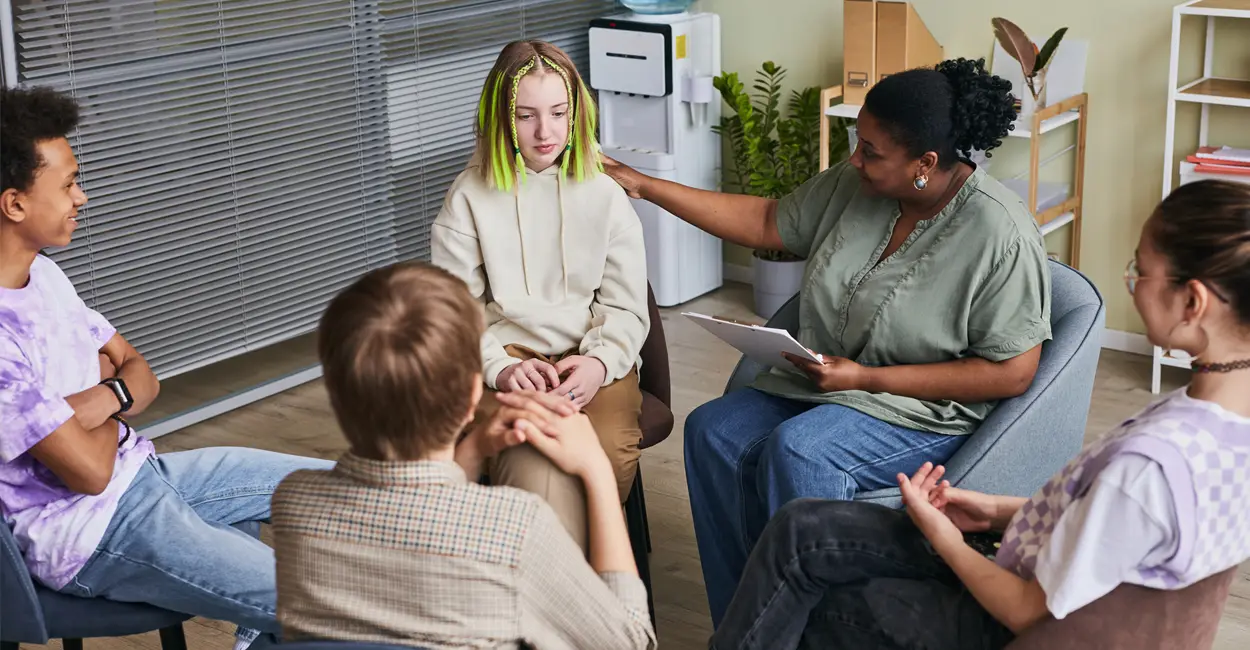24/7 Helpline:
(866) 899-221924/7 Helpline:
(866) 899-2219
Learn more about Group Therapy centers in Cortland

Other Insurance Options

State Farm

Health Choice

Coventry Health Care

Kaiser Permanente

MHNNet Behavioral Health

Molina Healthcare

Private insurance

American Behavioral

ComPsych

Regence

Holman Group

WellCare Health Plans

Group Health Incorporated

Highmark

UnitedHealth Group

MVP Healthcare

Covered California

AllWell

Sutter

WellPoint

Family Counseling Services
Family Counseling Services is a private rehab located in Cortland, New York. Family Counseling Servi...

Cortland Community Services – Horizon House
Cortland Community Services – Horizon House is a public rehab located in Cortland, New York. Cortlan...

Syracuse Recovery Services
Syracuse Recovery Services is a traditional private rehab center located in Cortland, New York. Syra...

PsyCare – Cortland
PsyCare – Cortland is a private rehab located in Cortland, Ohio. PsyCare – Cortland specializes in t...

ASI of Cortland
ASI of Cortland is a private rehab located in Cortland, New York. ASI of Cortland specializes in the...

AA – Alcoholics Anonymous
AA – Alcoholics Anonymous is a non-profit rehab located in Cortland, New York. AA – Alcoholics Anony...



























